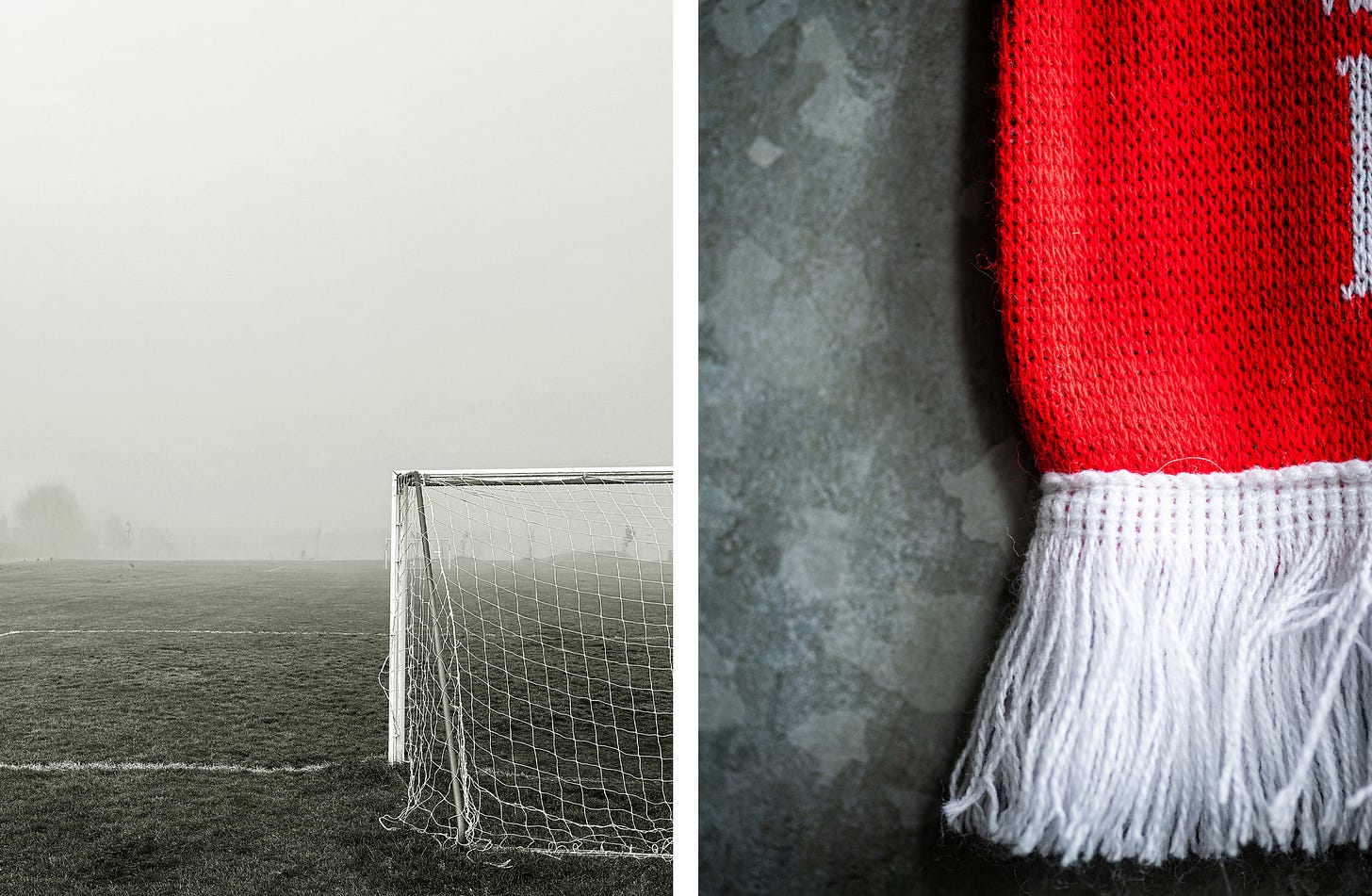Football, like most sports, moves many for reasons that go far beyond the enjoyment of spectating a competitive game. Watching twenty-two people chase after an inflated rubber bladder across a rectangular hundred-yard stretch of grass does seem like a strange way to pass ninety minutes of one’s time, but then we people are strange. My earliest memories of the sport I love most are of dribbling a hard rubber ball up and down the garden path to lash a strike against the washing line post that my twin brother was trying to guard. A few years and an eviction to the other side of Birmingham later, saw Pete and I spend hour after hour of our late childhood and teenage years repeat-volleying a ‘wind-carrier’ into the wall of the health centre car park across the road from our new council house. Before that, there was a televised game, in the snow with an orange football, that the team I had chosen to support were failing to win causing me to run to the top of the garden to cry out all of my anger and frustration. I would experience far greater existential pains via football and the supporting of a team, learning first about shame and then a horrifying numbness like nothing I’d had to process before. There would be so many games and moments that brought happiness though, such as the bliss of the second half of the ’86 cup final, when Dad was still with us. There was also the delicious torment of waiting for the scores to update on a Saturday afternoon live via Ceefax. It would be a fascination that would stay into my adult years and inexplicably provide two of the happiest nights of my life, one a miracle, and one yet even more impossible, both enjoyed with all the emotional incontinence of that same eleven-year-old child crying his temper tantrum at the top of the garden. I don’t watch anything like as much football as that child; I certainly don’t play any more. But it was a mix of all of these feelings and memories that were stirred when my boyhood team lost their brilliant manager a week ago. He will be remembered for the silverware he won and for almost matching the best team that the modern English game has seen for half of his tenure. But I think that the loss that so many fans of this club and of this peculiarly funny and irrelevant game will feel most is that we are also losing the most distinctly intelligent and beautiful soul. Bill Shankly joked that football was far more serious than life or death. But he knew absolutely what was most important to the people of Liverpool, to the club’s legion of working-class supporters. He understood what was so uniquely meaningful and beautiful about football: how it brought the people together. Klopp is cut from that same cloth, understanding what things in life matter most, the value that football brings, the community it fosters, the hope and belief it can instil. This little boy-adult will miss him greatly.
‘Friday Fragment’ is an additional weekly instalment to my A Thousand Fragments monthly newsletter.


